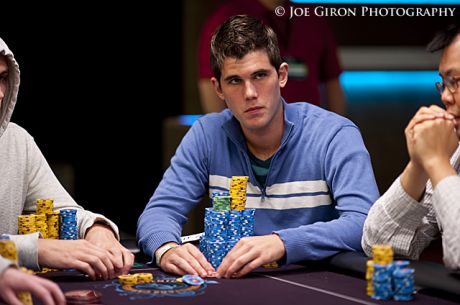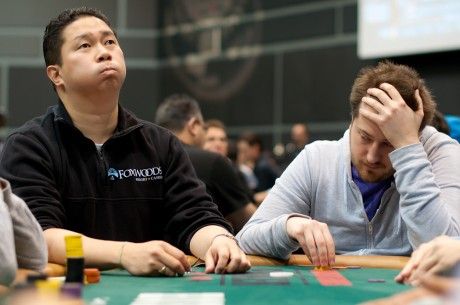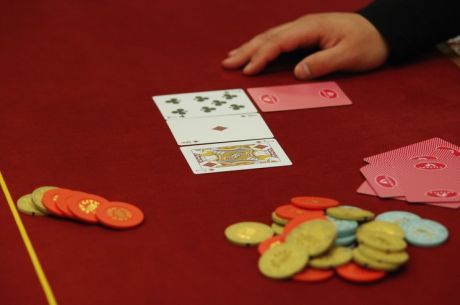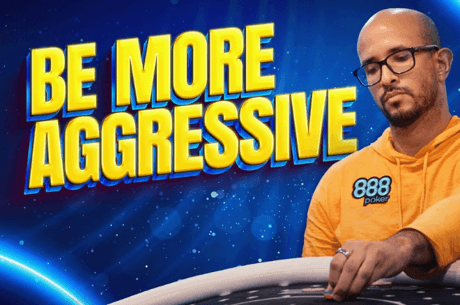It’s Okay to Be a Quitter In Poker -- In Fact, It’s Essential
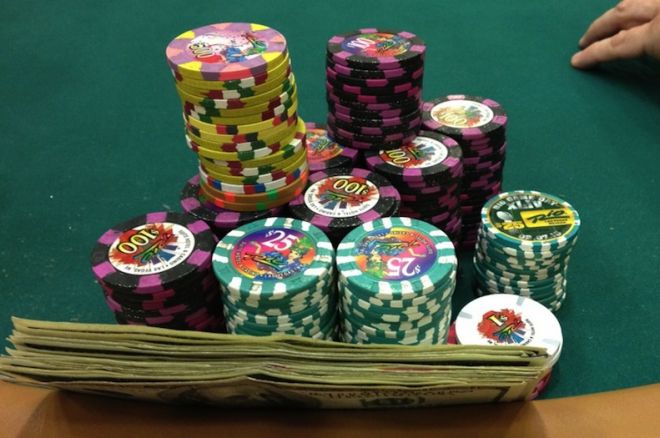
It happened — again — the last time I played poker. I was at Harrah’s Cherokee a week ago, on the electronic tables. In just two hours, I had racked up a nice profit of $240, including a chunk on the hand I had planned to be my last. But before I could hit the sequence of buttons to log out, the system had already dealt me another pair of cards: AxQx.
Long story short, I made top pair with top kicker, but still lost $80 — a third of my profit — to a guy who had flopped bottom two pair. If only I had left when I had previously decided to! I also could have accomplished the same thing by simply folding that last hand before I even looked at what the computer had dealt me.
It was hardly the worst of my playing-one-hand-too-many losses. I’ve managed to lose my entire profit, plus the original buy-in, on that “just one more hand” past my intended stopping point. If you’ve played poker for a while, chances are that you have, too.
Kenny Rogers’s lyrics to “The Gambler” have become clichéd, but it actually is true that you need to “know when to walk away, and know when to run” just as much as you need to “know when to hold ’em, know when to fold ’em.”
To quote Tommy Angelo, “I think of quitting as a skill set unto itself.”
Angelo devotes about eight pages to the subject in his outstanding book, Elements of Poker. He argues that profit in poker comes from doing a myriad of things better than your opponents, one of which is making the decision of when to quit playing. If you consistently quit playing at the right time and your opponents don’t, you make money from your edge in the skill of quitting.
When is the right time to quit? That’s as difficult a question to answer in a generalizable way as how to play AxKx. As with everything in poker, the only possible answer is, “It all depends.” The right time to quit depends on how you’re doing, how you’re feeling, how your opponents are playing, how the cards have been falling, the state of your bankroll, what obligations you have away from the table, and a jillion other factors, which rise and fall in relative importance from one session to another.

For example, if you’re due at your sister’s wedding, you had damn well better quit the game in plenty of time to get there, no matter what other factors would otherwise argue for staying. If you’re playing your A-game against a bunch of hopeless losers, but you’ve taken a horrendous series of bad beats, and the last money with which you could rebuy is the rent that’s due tomorrow, you have to walk away, period.
One of Angelo’s great insights is that in order to make a good decision about when to quit playing, you have to make it while you’re still making good decisions. After your decision-making capacity has been eroded by fatigue, boredom, irritation at other players’ idiocy, or a streak of bad luck, you will likely start making bad decisions about individual hands, which is bad enough. But worse is that you’ll probably also make a bad decision about quitting, and stay too long. This will compound your spiral downward, causing more loss, more tilt, and more failure to quit the game.
If you’re wondering whether your decision-making apparatus is operating below its optimal level, the answer is almost surely that it is, and you should leave before it deteriorates further.
Angelo offers two pieces of advice for common situations in which the decision whether to quit arises:
“When you are winning, and you reach a point in the session when the happiness you will gain by winning more money will be much less than the pain you will endure if you lose, quit….”
“If you are stuck and you are not having fun, and the reason you are not having fun is because you are stuck, then it’s okay to quit while citing this to yourself as the reason: I want to have fun. I am not having fun. So I will stop this unfun activity, now.”
His final insight on the skill of quitting well is this:
“One day I realized that every session of cash-game poker I ever play will end on a quit, so I really should continue forever to work on getting better at quitting….”
As you can tell from my most recent sessions, it’s something that I’ll be working on right along with you.
Robert Woolley lives in Asheville, NC. He spent several years in Las Vegas and chronicled his life in poker on the “Poker Grump” blog.
Get all the latest PokerNews updates on your social media outlets. Follow us on Twitter and find us on both Facebook and Google+!

